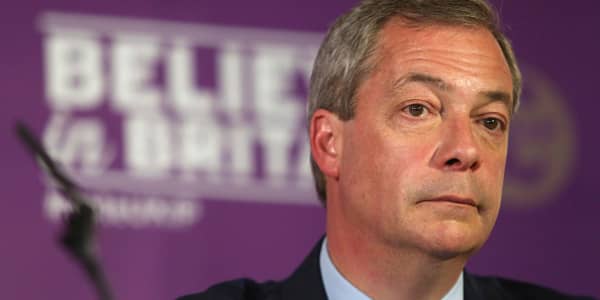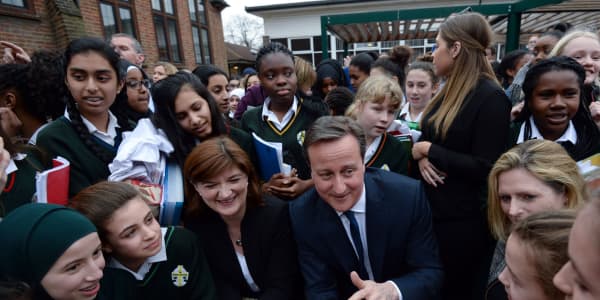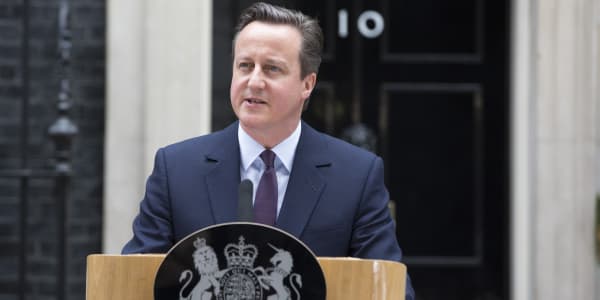The shadow of a general election and a possible exit from the European Union are already making investors nervous about the UK in 2015.
On Monday, traditionally the first back-to-work day of the New Year, sterling fell slightly against the dollar and the FTSE was flat, as traders warily eyed the UK.
The new year also saw all of the main parties launch their campaigns for May's general election and for what many pundits predict will be the most unpredictable poll in living memory.
"The traditional metrics in how the poll will turn out are being thrown out of the window," Jeremy Stretch, head of currency strategy at CIBC, told CNBC. He argued that sterling is likely to come under continued pressure ahead of the elections.
"All of a sudden, investors are saying they want to look back and see how the smoke clears before committing to the UK"
Doing the sums
While the left-leaning Labour Party is leading most recent polls, it looks increasingly likely that either it or the Conservative Party may have to enter a coalition with one or more of the smaller parties to ensure a majority. Another option is that one of the parties governs in what is known as a "hung parliament", where it doesn't have a majority and is reliant on the support of other parties to pass laws.
Either of these options may lead to the Liberal Democrats party, which got the third-biggest share of the vote in the last election, or minority parties like the Scottish National Party, the U.K. Independence Party (UKIP) or Northern Ireland's Democratic Unionist Party (DUP) holding the key to running of the country.
Will it stay or will it go?
The other cloud hanging over investors is whether the UK chooses to stay in the European Union or not. Back in 2013 Prime Minister David Cameron, under pressure from euro-skeptic members of his own party and the increasingly popular UKIP, promised to hold a referendum on the UK's membership of the EU, which is seen as meddlesome, bureaucratic and expensive by a large number of voters.
In an interview with the BBC, Cameron said Sunday that, if his party is in power after the next election, a referendum on the U.K.'s EU membership may come earlier than 2017, the year previously promised.
Ministers who are against the U.K.'s continued membership of the trading bloc will have to step aside from their posts if they want to campaign for a "no" vote, he announced.
Of course, this is all conditional on whether the Conservatives are in government after May's election. However, the Labour Party is also coming under pressure to hold a referendum on EU membership if it wins power, after growing evidence that UKIP is successfully targeting some of its traditional supporters.
Part of the problem is the different experiences of the economic recovery between London and the South East, and the rest of the U.K., where unemployment, low wages and moribund house prices are helping to create discontent. In this context, recent immigration from the European Union, particularly at the lower end of the labor market, makes an easy focus for anger.
"It's difficult for politicians to understand the non-metropolitan view of immigration and the EU," Stretch pointed out.
- By CNBC's Catherine Boyle







